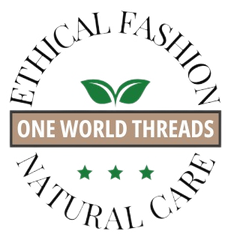
Ethical Fashion
Introduction to Ethical Fashion
In today’s world, ethical fashion and eco-friendly clothing are synonymous words. It covers an area where ethical fashion is created by processes that reduce carbon footprint and recycle waste.
1. Understanding Ethical Fashion Wardrobes
An ethical wardrobe is a statement and commitment to preserving the environment while wearing fashionable ethical clothes. It has a commitment to a transparent manufacturing process without harming people, animals, and the environment.
2. Research and Learning
Eco-friendly clothing begins with educating ourselves using books, documentaries, and social media. Online platforms open a horizon to the impact of fashion on our planet and our surroundings.
3. Establishing the Foundation
The process starts with our evaluation of current clothing in our wardrobe and replacing or adding new ones from available clothes under the eco-friendly clothing wardrobe listed online.
4. Selecting Ethical Brands
This is a crucial step and it aligns your thoughts to the available brands in eco-friendly fashion on platforms. The brands that focus on sustainability, transparency, no landfill, and fair labor practices should be chosen. Brands that promote social and environmental responsibility should be anchored.
5. Material Considerations
Eco-friendly, brands that use organic cotton, hemp, or recycled polyester should be anchored while rejecting leather and fur.
6. Quality Over Quantity
Eco-friendly focuses on well-made garments that are durable, minimize waste, and avoid quick reversal in trends and fashion. Clothe which can last a long time, should be preferred.
7. DIY and Upcycling
Personal preferences and motivated creativity in selecting eco-friendly clothing are a statement of your personality. It shows your commitment to preserving the environment while using fashionable clothes with a minimum carbon footprint.
8. Supporting Local Artisans
Supporting and guiding local artisans to develop the local economy and reduce the carbon footprint due to reduced transportation.
9. Garment Care and Maintenance
Supporting and using clothes under eco-friendly brands is a lifetime of commitment to Mother Earth including care in using clothes, using less water, washing, and using eco-friendly laundry practices. Repairing and maintaining torn clothes requires you to attempt to increase wear life.
10. Community Engagement
Once you are motivated to use eco-friendly clothing brand clothes, it becomes a moral commitment to be like-minded people around us on the same platform and help our future generations leading to a less polluted and friendly planet
11. Budgeting for Eco-friendly Fashion
Initially, in formative years, the cost of clothes under ethical fashion may be tagged a bit higher than the fast fashion clothes but, our commitment to expand the horizon for ethical brands will eventually bring it to par with fast fashion.
12. Advocacy and Awareness
Eco-friendly clothes are the need of the time. You can not afford to ignore them any longer. All around increased awareness and the essence of eco-friendly clothing must be impregnated in communities.
Conclusion
Choosing eco-friendly clothes is a statement to a world that WE CARE. We care so we want to change, we want to change to an ethical fashion. It is the least we can do to repay Mother Earth’s debts.
Unique FAQs
Q: Is eco-friendly limited to clothing, or does it include accessories?
A: Ethical fashion opens its arms to embrace the whole ecosystem surrounding us daily. It covers all aspects of fashion and its accessories.
Q: How can consumers determine if a brand is truly ethical?
A: Fortunately the latest generation of people is very aware and educated. They can easily study the footprints of the company and come to their conclusion about its authenticity. Companies upload many tools like manufacturing processes and raw materials authenticity details. This can be a rich source for evaluations.
Q: Is eco-friendly fashion more expensive than conventional fashion?
A: It depends on the ethical values that the customer has anything which has better management resources and more environment-friendly processes, will love an additional cost. But over time when more and more brands come to bring down costs.
